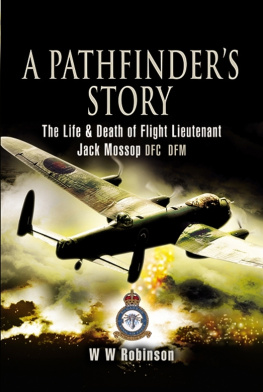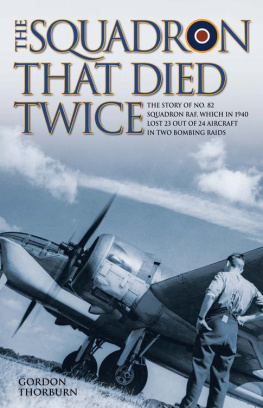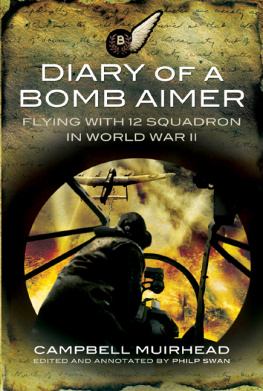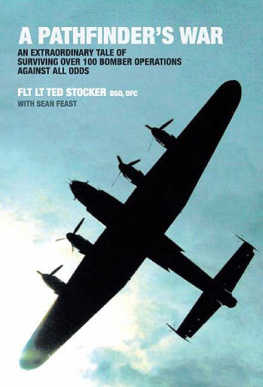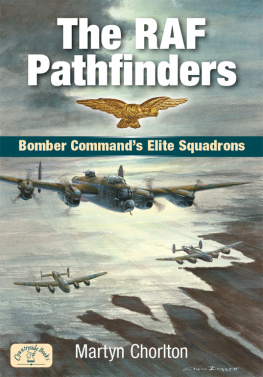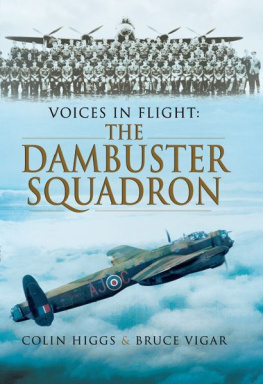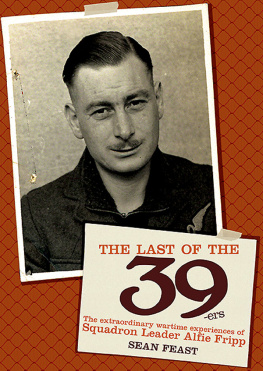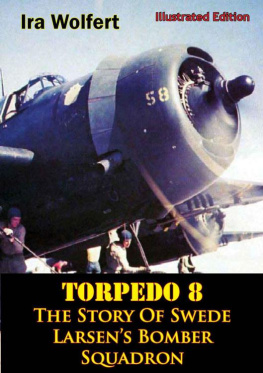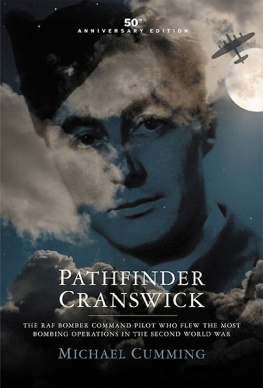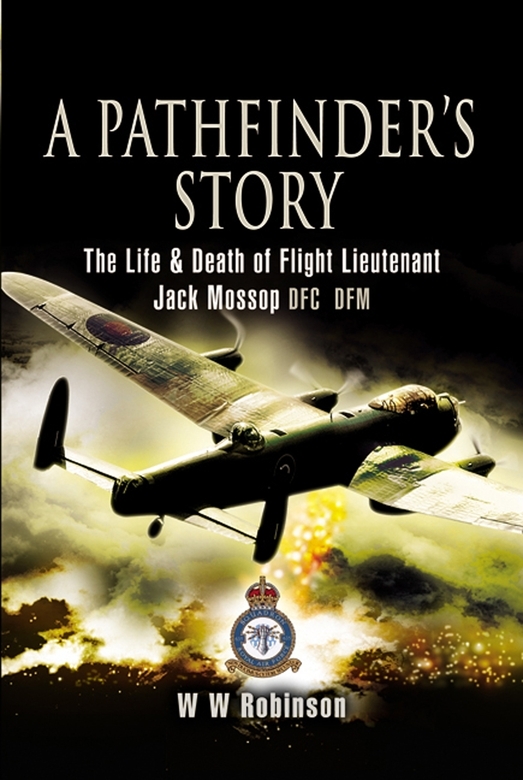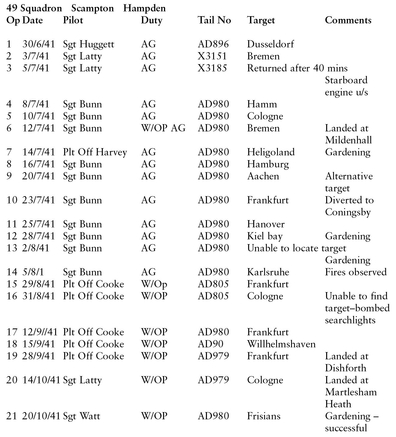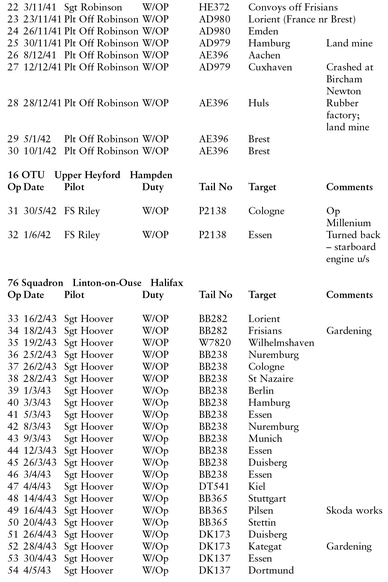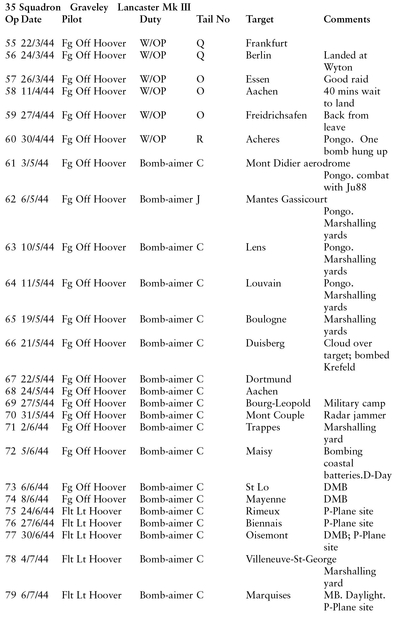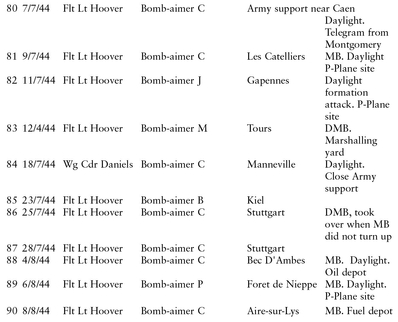Acknowledgements
Although I have made good use of other works written about the RAF bomber campaign, as indicated in the notes, the story of Jack and Hilda Mossop could not have been told without five essential sources.
First the National Archives at Kew, whose staff were exemplary in providing assistance and advice on how to identify and locate the principal sources and provided access to the Operational Books of the RAF stations on which Jack Mossop served during his three operational tours. The files consulted were AIR 27 and AIR 28.
Second the Ministry of Civil Aviation file on the accident to Lancastrian G-AGMF, reference BT217, now held by the National Archives.
Third the Royal Air Force Personnel Agency at RAF Innsworth who provided details of Jack Mossops career.
Fourth the library of the RAF Museum at Hendon where, with expert advice from the staff, I was able to understand the internal layout of various aircraft in which Jack Mossop flew.
And Fifth information provided by Bill Lloyd and his daughter Jenny Coster on the complements of the crews on 76 and 35 Squadrons and their exploits. Beryl Hill, the widow of Warrant Officer Cliff Hill, also provided memories of Jack Mossop, and my cousin, Mary Fawcett, gave me information on the relationships in the Mossop family.
I must also acknowledge the help I have had from my family, in particular of course from my mother, Hilda, whose memory over more than sixty years is better than mine over one, and also from my son, Daniel, who contributed much to the structure of the story and provided some invaluable proof reading.
Appendix 1
Ranks in the Royal Air Force
Although the ranks in the Royal Air Force have not changed since 1945, their abbreviations have. This is a list of those currently in use.
| Rank | Abbreviation |
|---|
| Commissioned ranks |
| Marshal of the Royal Air Force | MRAF |
| Air Chief Marshal | ACM |
| Air Marshal | AM |
| Air Vice-Marshal | AVM |
| Air Commodore | A Cdre |
| Group Captain | Gp Capt |
| Wing Commander | Wg Cdr |
| Squadron Leader | Sqn Ldr |
| Flight Lieutenant | Flt Lt |
| Flying Officer | Fg Off |
| Pilot Officer | Plt Off |
| Non commissioned ranks |
| Warrant Officer | WO |
| Flight Sergeant | FS |
| Chief Technician | Ch Tech |
| Sergeant | Sgt |
| Corporal | Cpl |
| Junior Technician | JT |
| Senior Aircraftman | SAC |
| Leading Aircraftman | LAC |
| Aircraftman 1 | AC1 |
| Aircraftman 2 | AC2 |
| Note: The term aircraftman now includes aircraftwoman. |
Appendix 2
Jack Mossops Ninety Operations in Chronological Order
Appendix 3
The Alice Hawthorn Anthem
Theres a grand little pub
Only twelve miles from York
Where fellows can stretch out at ease
And relax from the turmoil of being at war
And do as they damn well please.
Its a snug little pub a haven of rest
With good humour the whole evening through
Where theres laughter and fun
When the days work is done
And never a chance to feel blue.
Theres always a welcome, a warm one at that
And beer that comes from the wood
A game of darts bar billiards too
And corn on the cob if you are good.
You hang up your hat and order your meal,
And stretch out your legs to the blaze
And think to yourself how good it would be
To stay to end of your days.
To hundreds of lads whove come over the seas
To fly our big four-engined kites
The Alice means friendship and comfort and home
On non-operational nights.
The food is superb, its wonderful how
Mrs Dodman cooks for a lot
Its a sight for sore eyes when the plates come in
At this perfectly heavenly spot!
To knock back a jar with Ted in the bar
Its just like heaven on earth
While Norman and Silver gossip all night
About farming for what it is worth.
The lads who come here again and again
Theyve no inclination to roam
They know very well that the Alice is swell
They look upon it as home.
So thanks Mr Ted and thanks Mrs Ted
And thank to the Joans big and small
Were grateful for all the kindness youve shown
We shall long remember it all.
Epilogue
I have now nearly reached the end of my story. What happened next? The answer is very little, at least in comparison with the events which I have described.
Jacks posting from 35 Squadron as soon as he had completed ninety operations broke the bonds of the crew. He remained in touch only with Cliff Hill, the air gunner and Bill Lloyd, the flight engineer. Both were awarded well deserved DFMs. Cliff finished his service in the RAF in the rank of warrant officer. Bill Lloyd was commissioned, and when the war ended in 1945 he followed Jack into BOAC. Cliff had thought that Jack was immortal. In his experience, no one survived ninety operations. Bravery is one of the minor themes of this story, and we have seen some significant examples. Jack won a medal for his action over Cuxhaven in the cold winter of 1941/42, flying in a sparsely fitted Hampden bomber. His bravery then was an immediate reaction to dangerous circumstances, but it was a different order of bravery which enabled aircrew to expose themselves to risk on a regular basis, with odds of survival which with time could clock up to odds of 10 to1 against.
Perhaps if British governments in the 1930s had been more active in building a strong military capability, the need for such bravery would not have occurred. The theme of politics touches this story, but I started the story at a time when the mistakes had been recognised and there was strong political will to resist aggression. One of the factors which led to the Allied victory was high resolve at the political level. The strategic aim was simple: to defeat Germany and to restore the sovereign states of Europe. This aim was largely maintained during the years of war, but success led to another period of uncertainty in the form of the Cold War. Arguably it was the memory of the Second World War which kept the Cold War cold. Back in 1939, however, the British Government had few options. If the threat posed by Germany and its allies was to be met and overcome, it was essential that Britain took the war to the enemy. For a long time RAF Bomber Command was the only force which could prosecute that strategy. The men who fought in the air came from many countries, and many other men and women provided essential support on the ground. The particular contribution of Canadian aircrew, who found a second home in the villages of North Yorkshire, gave this story another theme. Jack flew in fifty-eight operations with a Canadian pilot, including twenty-two with another three Canadians.

